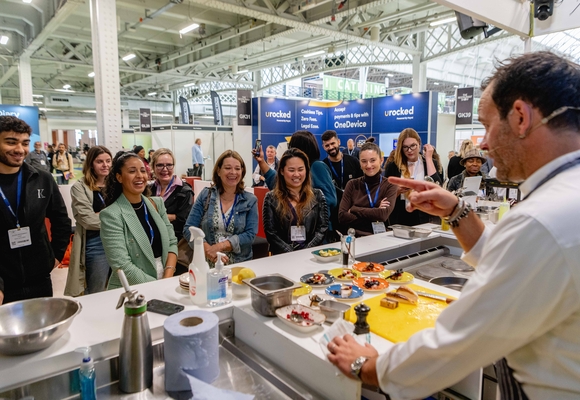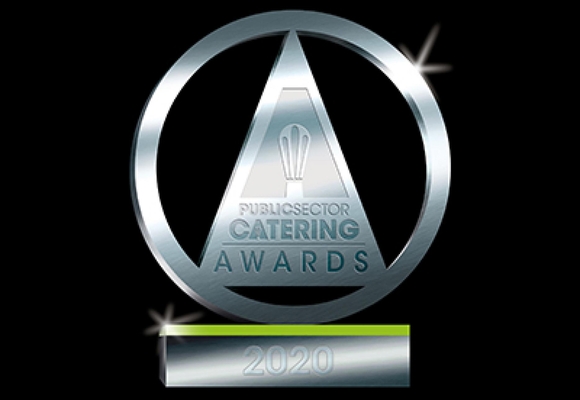From keeping potato skin on chips to saving perfectly good left-over food to make another meal, and tricks for keeping food fresh for longer, Food Waste Action Week will get us all thinking, talking and posting about how we can Love Food Hate Waste.
Wasting food feeds climate change
Our message is “wasting food feeds climate change” because the production of every pea, potato and slice of bread releases CO2e into the atmosphere. The problem is made worse when that food ends up in the bin. In fact, if food waste were a country, it would be the third largest emitter of greenhouse gases after China and the US.
We’re asking you to step up to the Food Waste Action Week challenge on Instagram during 1-7 March to try to reduce the edible food you throw away to as close to zero as possible. And you can win some brilliant prizes. Check out our top 10 food saving tips below, and head to www.lovefoodhatewaste.com and follow @LFHW_UK for tonnes of ideas and inspiration.
Contribute to the conversation by sharing your best hacks, tips and tricks for reducing the amount of food you waste - tag @LFHW_UK and use #FoodWasteActionChallenge for your chance to win. T&Cs on our website.
Calling all Guardians of Grub…
Food Waste Action Week will bring together the whole food supply chain in efforts to curb waste from farm to fork, with over 70 food businesses backing the campaign. And we want to celebrate the hospitality, food service and catering heroes who serve up delicious meals day in day out. The Guardians of Grub campaign helps to equip teams with the tools they need to combat wasted food.
In the UK, the Hospitality and Food Service sector throws away over one million tonnes of food, 75% of which could have been eaten.
For those working on campus in restaurants, cafes and bars, Guardians of Grub is for you. Why not share tips to save food during the Week and beyond, using the #FoodWasteActionWeek and #GuardiansofGrub hashtags and tagging @LFHW_UK on social media channels.
And, if you work in hospitality and you’re open and serving food, we’re keen for you to start measuring and managing your food waste.
The free tracking tools have helped many caterers make massive savings – often because people don’t think they have much food waste until they start logging it. Seeing how much food is wasted usually inspires people to take swift action to stop it. We’re encouraging people in catering to use our simple tracking sheets, posters and calculator to work out how much they can save.
Check out www.guardiansofgrub.com for the tools you need to rise up against food waste.
We all have a role to play and are part of the solution, contributing to the UK’s goal of halving food waste by 2030.
Keen to get started saving food? Check out Love Food Hate Waste’s top 10 tips for Food Waste Action Week!
- It’s a date! ‘Use by’ is about safety – food should not be eaten after this date (even if it looks/smells fine). ‘Best before’ is about quality – although food won’t be at top quality after this date, it will still be safe to eat for some time.
- Compleat. Always binning crusts and broccoli stems? Over two-thirds of the food we waste is perfectly edible, so using every edible bit of your food (‘compleating’) is essential. Try leaving the skin on when you make mashed potato – this will save you time as well!
- Chill the fridge out. The average fridge temperature in UK homes is nearly 7°C, but foods will last longer if they are kept at under 5°C. Not sure how to adjust your fridge temperature? Love Food Hate Waste can help.
- Perfect portions. Hands up who has ever found themselves with far too much rice or pasta? It’s easy to do, but there are simple ways to cook the perfect amount. For example, a mug filled with dry rice will cook enough for four adults.
- Snap a shelfie. If you’re not a fan of shopping lists, take a picture of your fridge/cupboard shelves before you head to the shops instead. This will stop you from buying something you’ve already got at home.
- Savvy storage. Most fruit and veg will stay fresher for longer in the fridge. The key exceptions are bananas and pineapple (keep these on the counter), and onions and potatoes (which should be kept in a cool, dark, dry place – like a cupboard!). Not sure where something should be stored? Try our Food Storage A–Z!
- Freeze up to the ‘use by’ date. All foods with a ‘use by’ date, including meat, can be frozen right up to this date. This is especially helpful if your plans change at the last minute – before you order an emergency takeaway, check your fridge for anything that can be frozen for another day.
- Ice-cube tray – the freezer hero. Too much milk, not enough time? Pour your remaining milk into ice-cube trays and freeze – this is the perfect amount for a brew. You can use ice-cube trays to freeze fresh herbs, too. Chop them up, pop them in the tray, and top up with oil, and then you have easy portions to add to the pan next time you’re cooking.
- Use your loaf. Bread is another food that freezes beautifully. Put your sliced loaf in the freezer, and then you can pick out a slice at a time and toast straight from frozen. Extra tip: tap the loaf on the counter before you freeze it to stop the slices sticking together.
- Unidentified Frozen Objects. Before you freeze your leftovers, label the bag/container telling you what’s inside and when you froze it.
We hope we have given you some inspiration for Food Waste Action Week – simple everyday things we can all do to reduce food waste.






